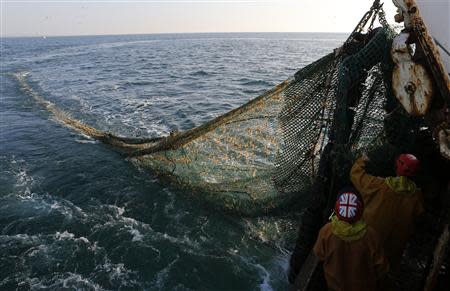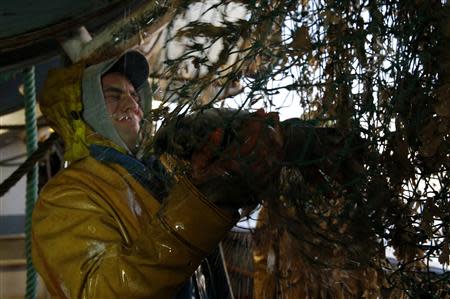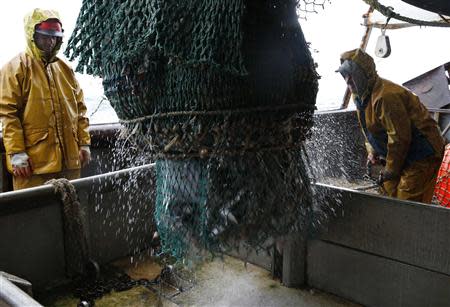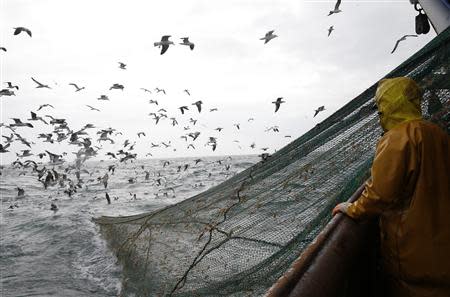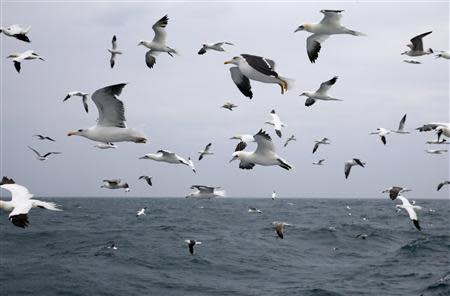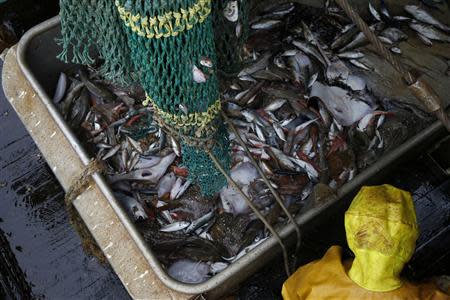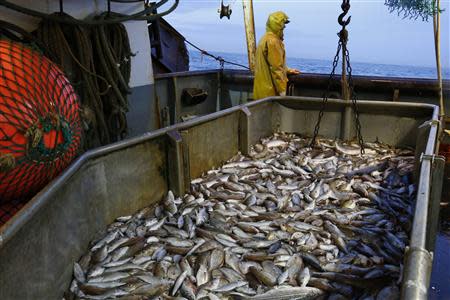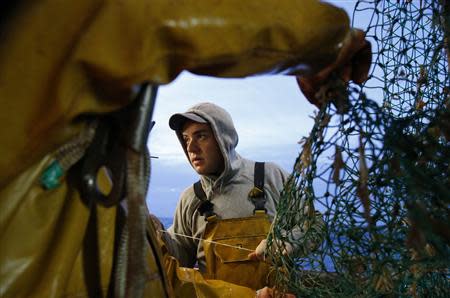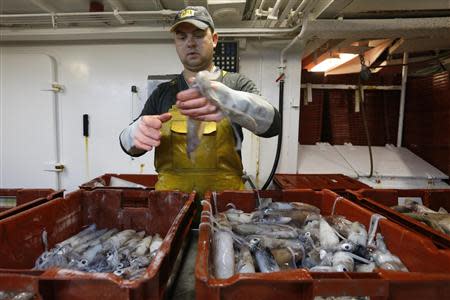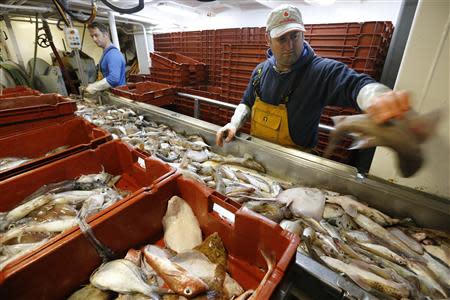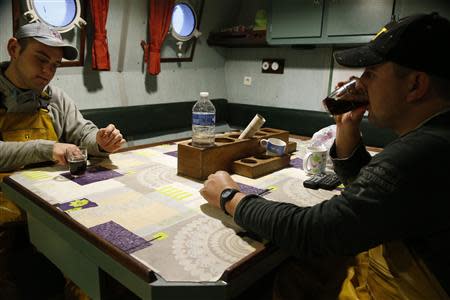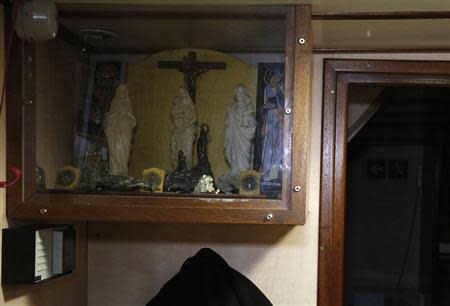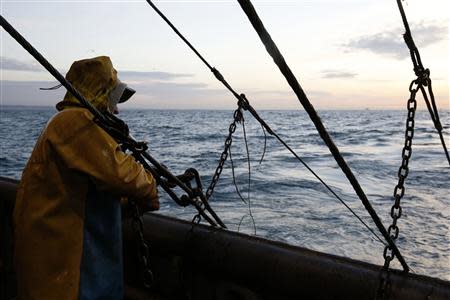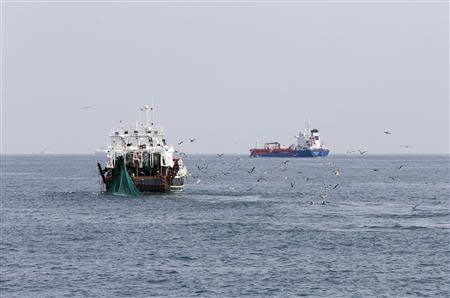EU lawmakers reject subsidies for new fishing boats
STRASBOURG (Reuters) - Fishermen will not get European Union subsidies to build new vessels for the bloc's already swollen fleet, EU lawmakers agreed on Wednesday, in a vote that raised hopes for an end to decades of over-fishing in Europe. Voting on how to allocate nearly 1 billion euros ($1.4 billion) in annual fisheries subsidies up to 2020, the European Parliament said more money should be spent on assessing the state of Europe's depleted stocks and measures to clamp down on illegal fishing. If confirmed in talks with governments, the proposals could spell relief for the estimated 75 percent of EU fish stocks that the European Commission says are over-fished. The European Union scrapped subsidies for new boats nearly a decade ago, but French and Spanish parliamentarians backed by their powerful domestic fishing fleets led a push to reintroduce the payments. Conservation groups largely backed the parliament's position, though there was still a risk the proposals would be watered down in negotiations with member states. "This can help make sustainable EU fisheries a reality, as long as governments follow the direction that parliament set," said Saskia Richartz, EU fisheries policy director for Greenpeace. NEW ENGINES Some Liberal and Green lawmakers criticized a decision to allow a limited amount of EU funds to be used to upgrade existing vessels - for example by fitting them with new engines. "Modern engines can do the job more effectively than old ones, and so increase the catching capacity of the fishing fleet without creating any new jobs," British Liberal MEP Chris Davies said in a statement. Employment in EU salt-water fisheries was the equivalent of 140,000 full-time jobs in 2009, according to the most recent figures from the European Commission. Numbers are very likely to have fallen since. Talks between governments and the parliament to finalize the spending rules are due to begin in November, with a deal expected before the start of next year when the new rules will enter force. In May, negotiators completed a complex overhaul the bloc's common fisheries policy, which alongside subsidies has been blamed for driving decades of overfishing. That deal will put an end to annual haggling over catch quotas by EU fisheries ministers, and drastically reduce the practice of "discards", which sees fishermen throw almost 2 million tons of unwanted fish back into the sea each year. Europe's top fishing nations are Denmark, Spain, Britain and France, which together account for about half of all EU catches. Europe had the third-highest fish catches globally behind China and Indonesia in 2010, the most recent data from the U.N. Food and Agriculture Organization showed. (1 = 0.7260 euros) (Reporting by Gilbert Reilhac, writing by Charlie Dunmore; Editing by John Stonestreet)
